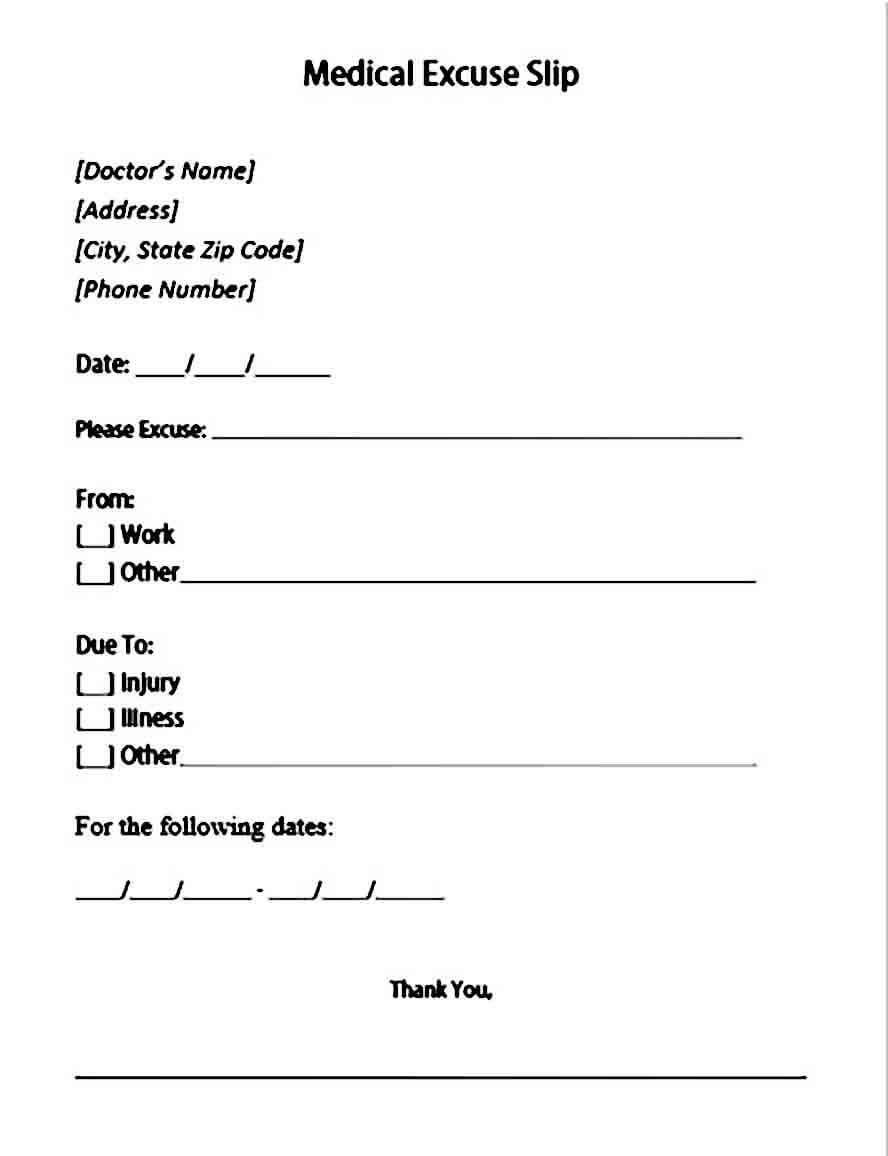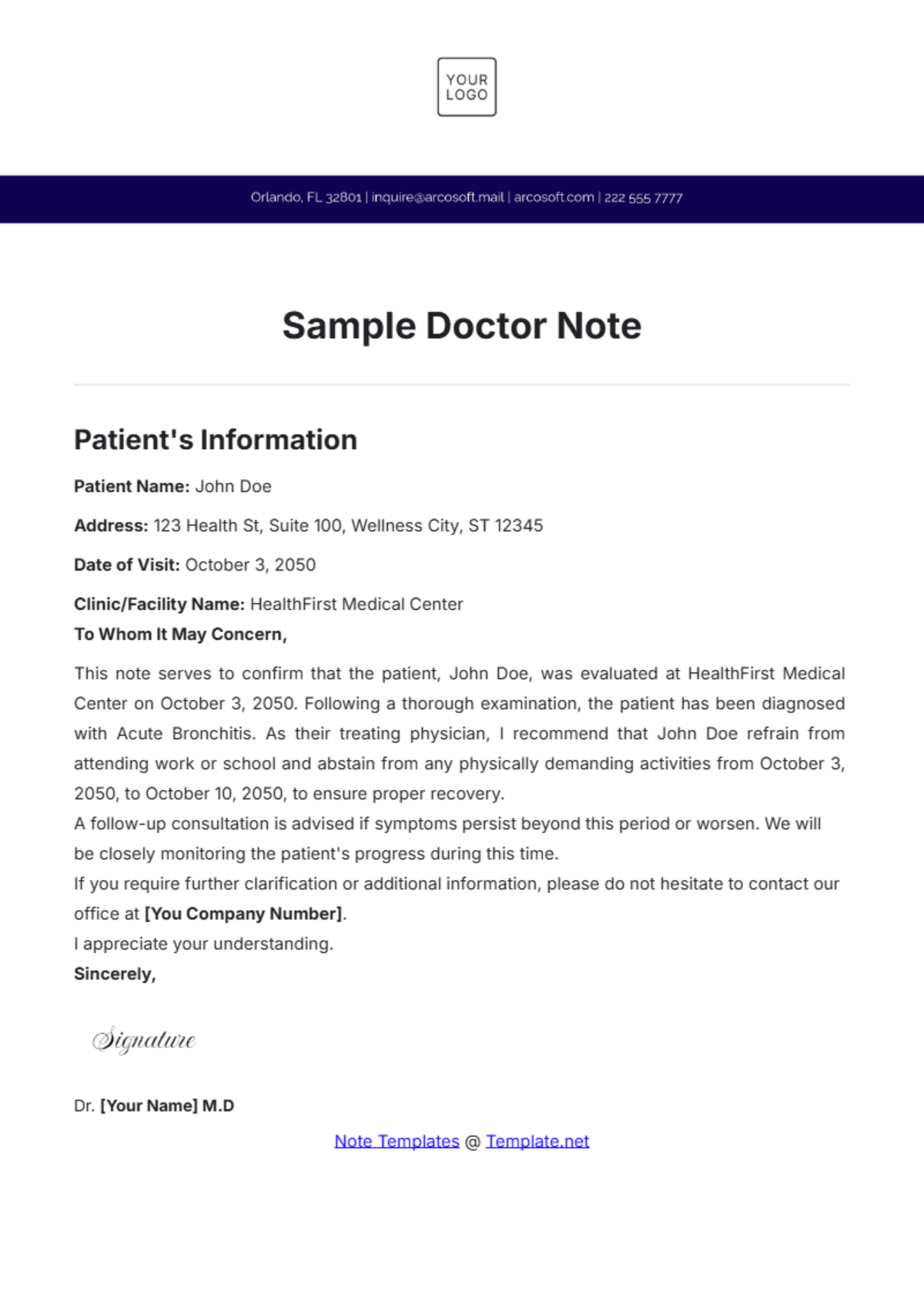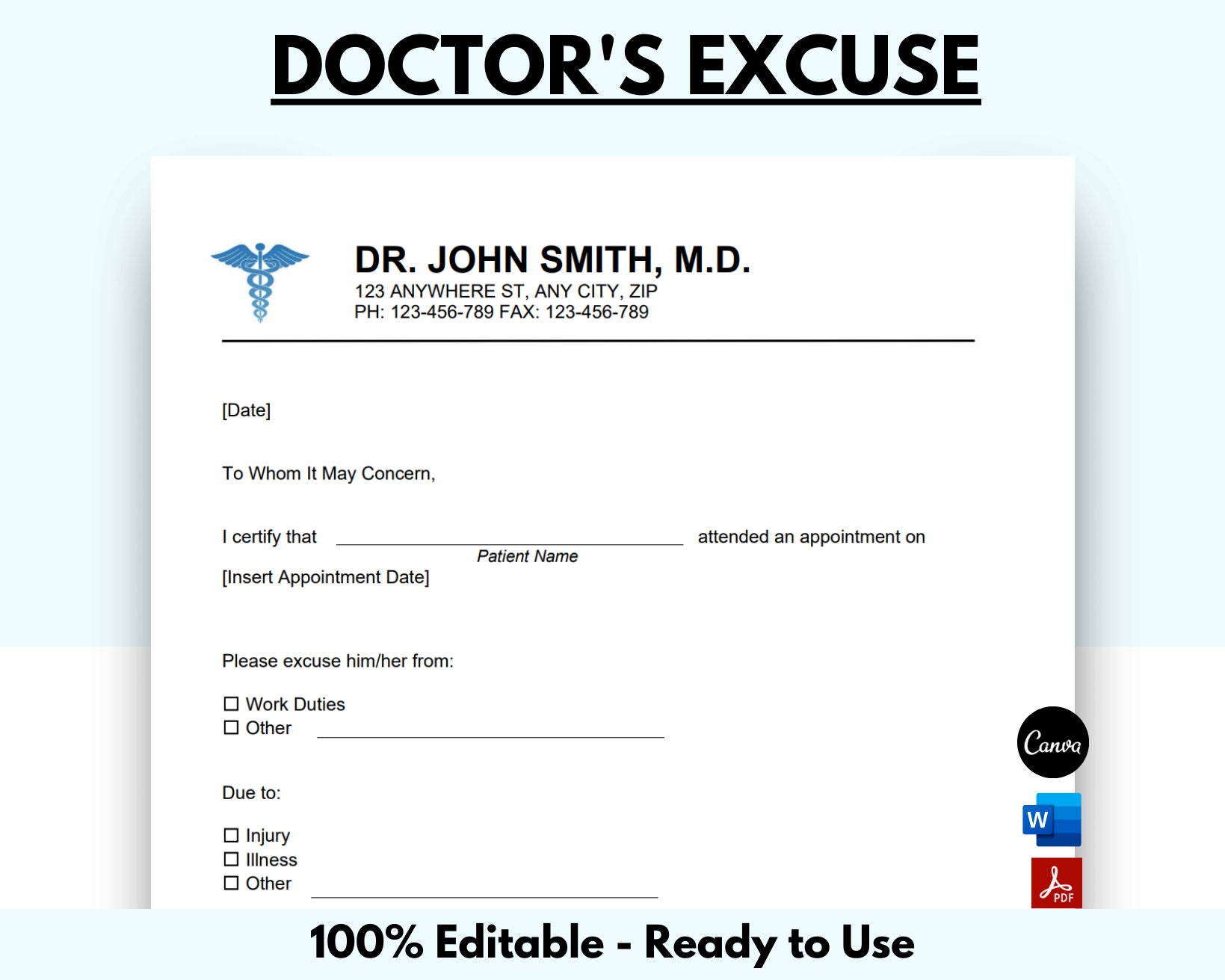Can I Get A Doctor's Note Without Being Seen
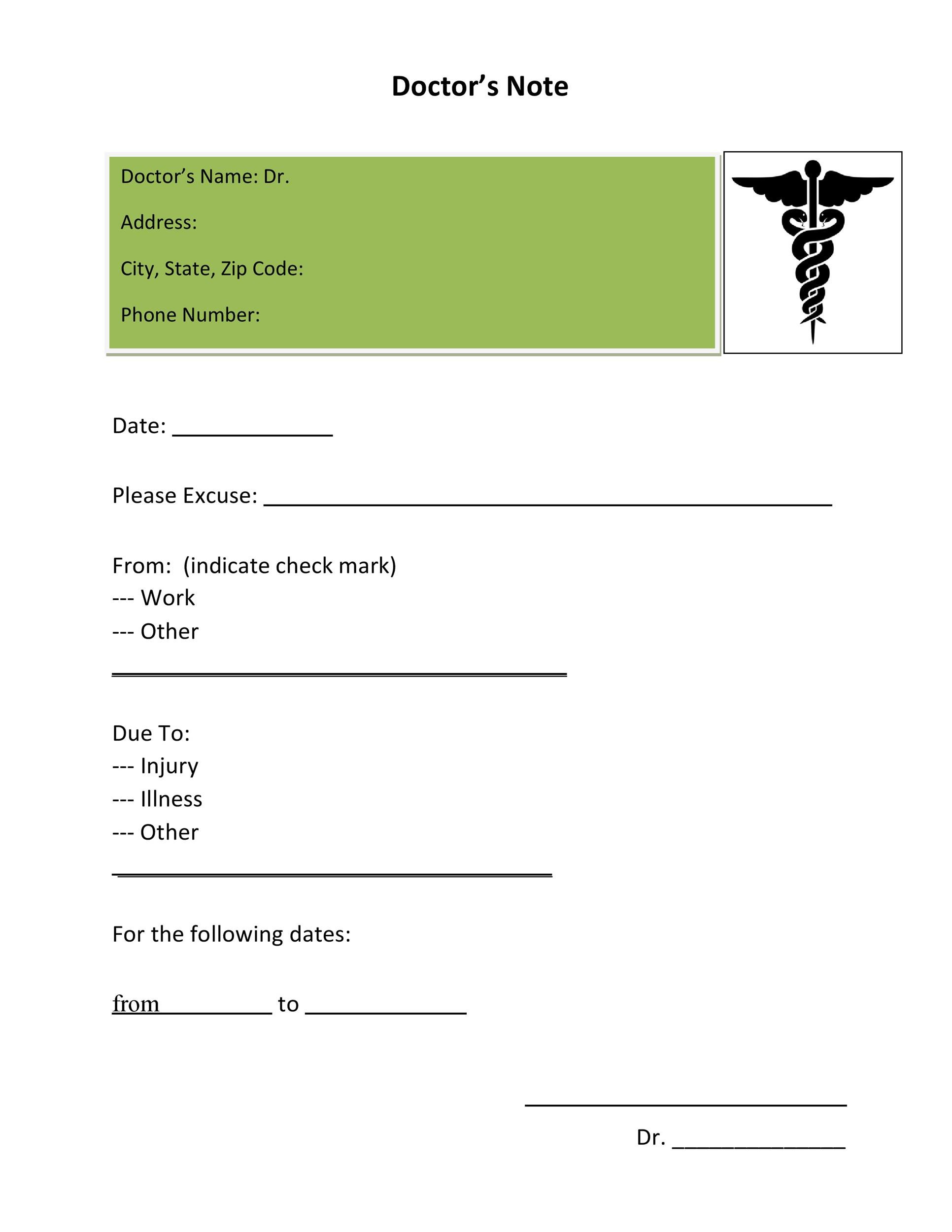
In an increasingly digital age, the question of whether one can obtain a doctor's note without a physical examination has become a common query. The convenience of skipping a visit to the clinic is attractive, but the practice raises important ethical, legal, and medical concerns.
The ability to obtain a doctor's note without being seen, sometimes referred to as "remote note procurement," involves receiving documentation justifying an absence from work, school, or other obligations based on a perceived or self-reported medical condition without a face-to-face consultation or even a virtual examination.
The Rise of Telehealth and Remote Services
The proliferation of telehealth platforms has significantly altered the healthcare landscape. These platforms connect patients with healthcare providers remotely, offering consultations, diagnoses, and even prescriptions through video conferencing or other digital communication channels.
However, the line blurs when the request is solely for a doctor's note, rather than a comprehensive assessment and treatment plan. This raises questions about the validity and appropriateness of such practices.
Legitimate Use Cases for Remote Assessments
There are instances where a remote assessment might be acceptable, particularly for established patients with well-documented conditions. For example, a patient with chronic migraines might occasionally require a note if their symptoms flare up unexpectedly, and a previous physical examination has established the diagnosis.
Similarly, for minor illnesses or temporary conditions, telehealth consultations, including video calls, can provide a sufficient basis for a doctor's note. The key here is the degree of assessment and the established relationship between the patient and the provider.
The Ethical and Legal Gray Areas
The practice of providing doctor's notes without a proper assessment is fraught with ethical and legal challenges. Issuing a note without a thorough examination could be considered unprofessional conduct, potentially violating ethical guidelines established by medical boards.
Moreover, it can expose healthcare providers to legal liabilities if the patient's claimed condition is misrepresented or if the absence leads to harm or damages. Fraudulent or misleading notes are particularly problematic and can have serious consequences.
The Perspective of Medical Professionals
Many medical professionals express reservations about issuing notes without seeing patients. They argue that a physical examination is crucial for accurate diagnosis and treatment planning.
The American Medical Association (AMA) emphasizes the importance of patient-physician relationships built on trust and comprehensive assessments, which are difficult to establish without direct interaction.
The Role of Employers and Educational Institutions
Employers and schools play a critical role in determining the acceptability of doctor's notes. Many organizations have policies outlining the types of documentation required for absences and the conditions under which they will be accepted.
Some organizations might accept notes from telehealth providers, while others may require notes from in-person visits, particularly for extended absences or serious medical conditions. Clear communication between employees/students and their respective institutions is essential.
Human Resources departments often face the challenge of verifying the authenticity of doctor's notes. The rise of online platforms offering dubious notes has complicated this process.
The Potential Impact on Public Health
The ease of obtaining doctor's notes without being seen can have implications for public health. It can incentivize individuals to exaggerate or fabricate illnesses to avoid responsibilities.
This can contribute to absenteeism and potentially undermine the credibility of legitimate medical excuses. Furthermore, it can hinder efforts to track and manage infectious diseases if individuals are not properly assessed and treated.
The spread of misinformation regarding health conditions is a serious concern that the World Health Organization (WHO) has repeatedly addressed. Easy access to unchecked medical excuses could exacerbate this issue.
Conclusion
While telehealth and remote services offer convenience and accessibility, obtaining a doctor's note without being seen presents complex ethical, legal, and medical challenges. A comprehensive assessment is essential for proper medical care and responsible documentation.
The practice of issuing notes without proper evaluation raises concerns about professionalism, liability, and potential abuse. Both healthcare providers and patients should be aware of the implications and adhere to established ethical and legal guidelines.
Ultimately, striking a balance between leveraging technology for convenience and upholding the integrity of medical documentation is crucial for maintaining public trust in the healthcare system. Transparency and responsible practices are vital in navigating this evolving landscape.
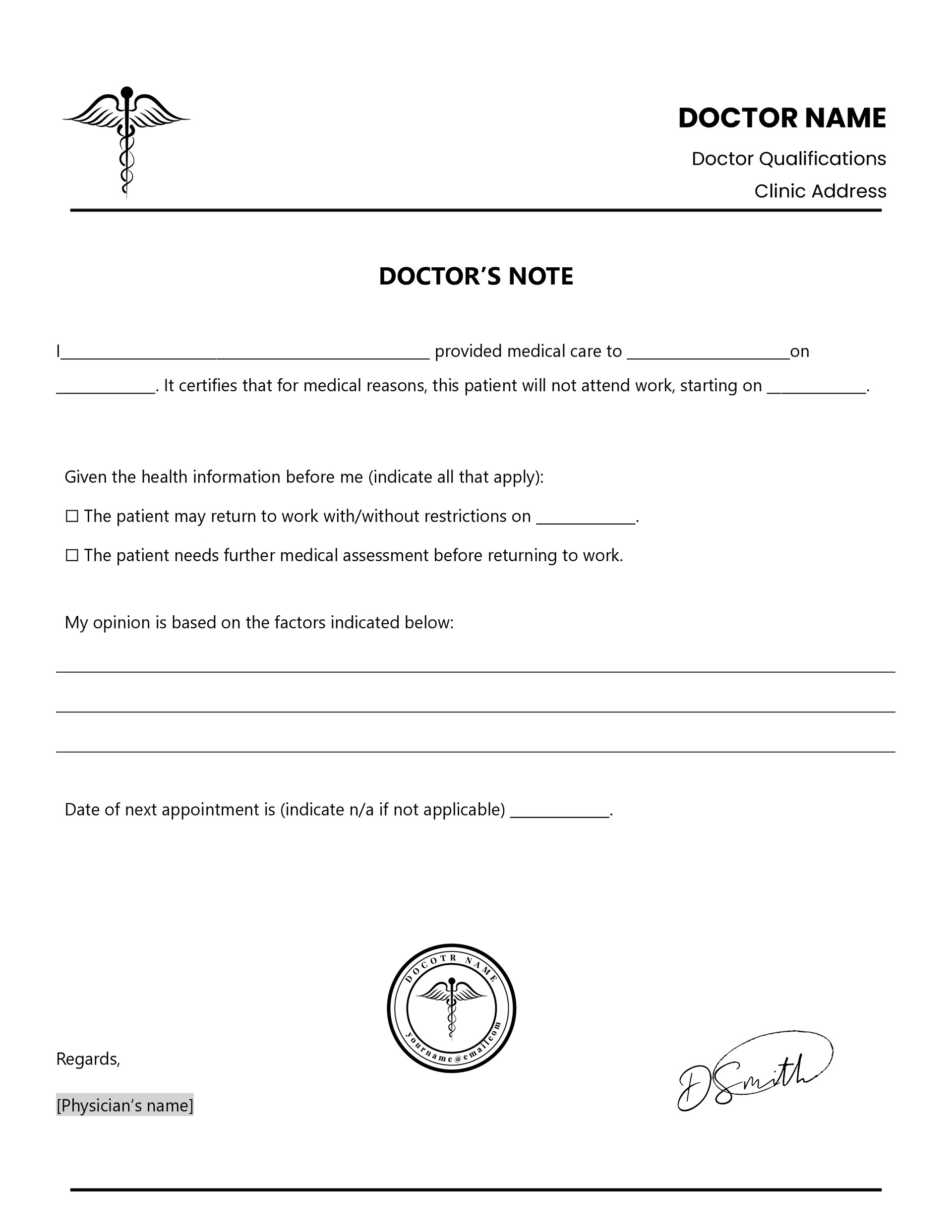
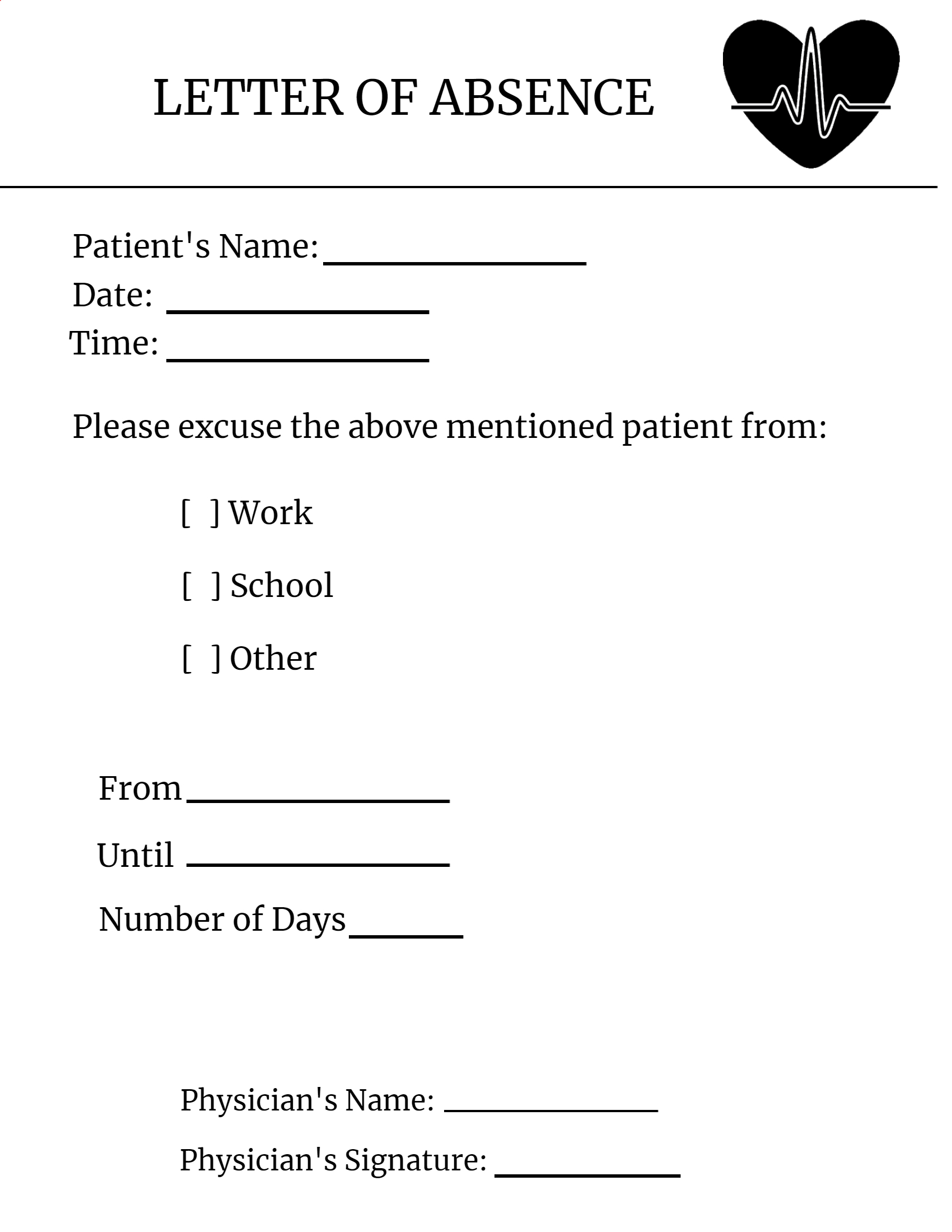
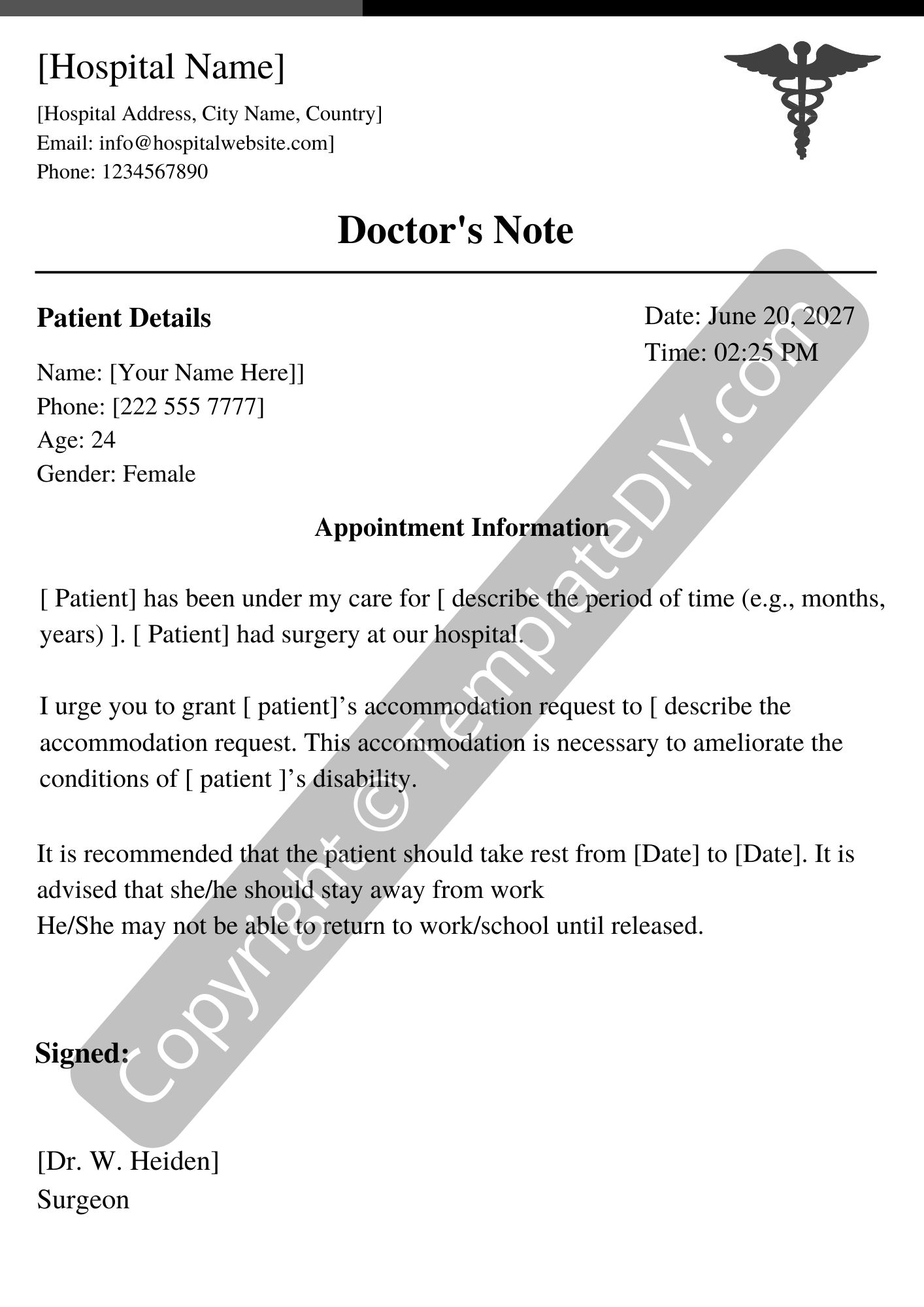
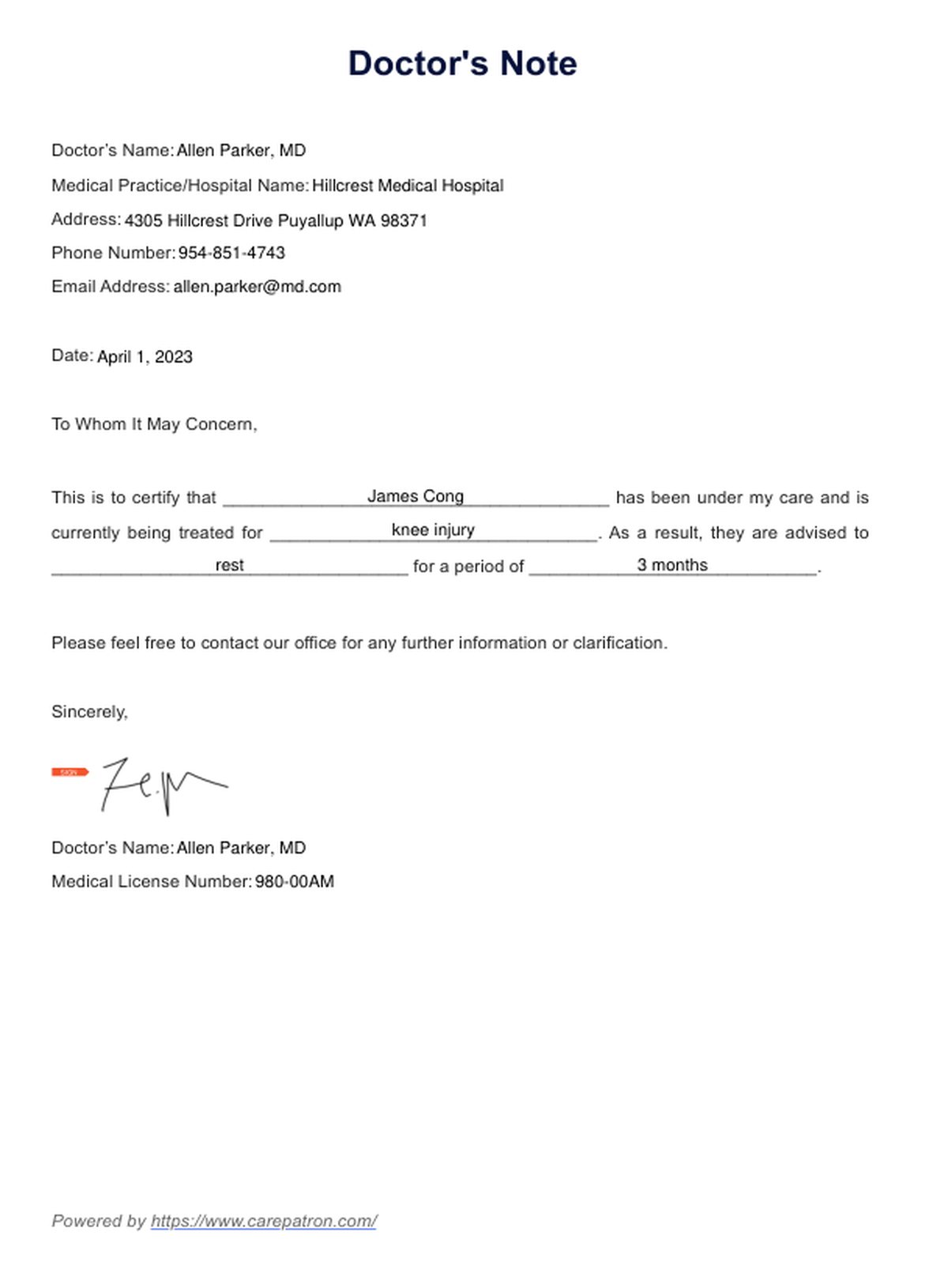


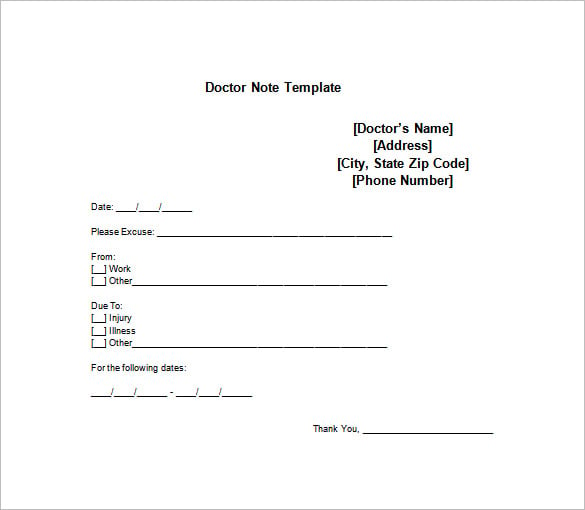
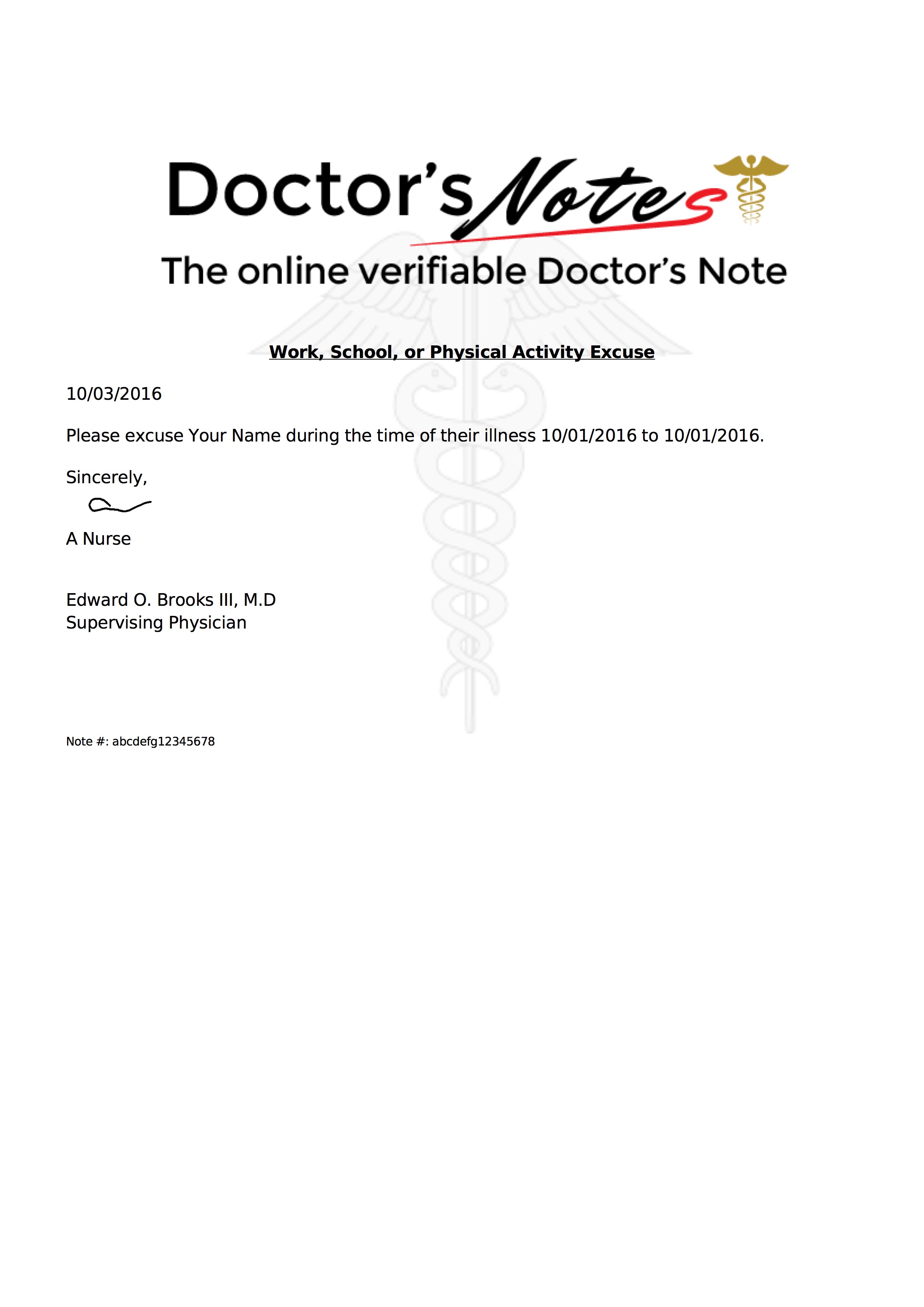
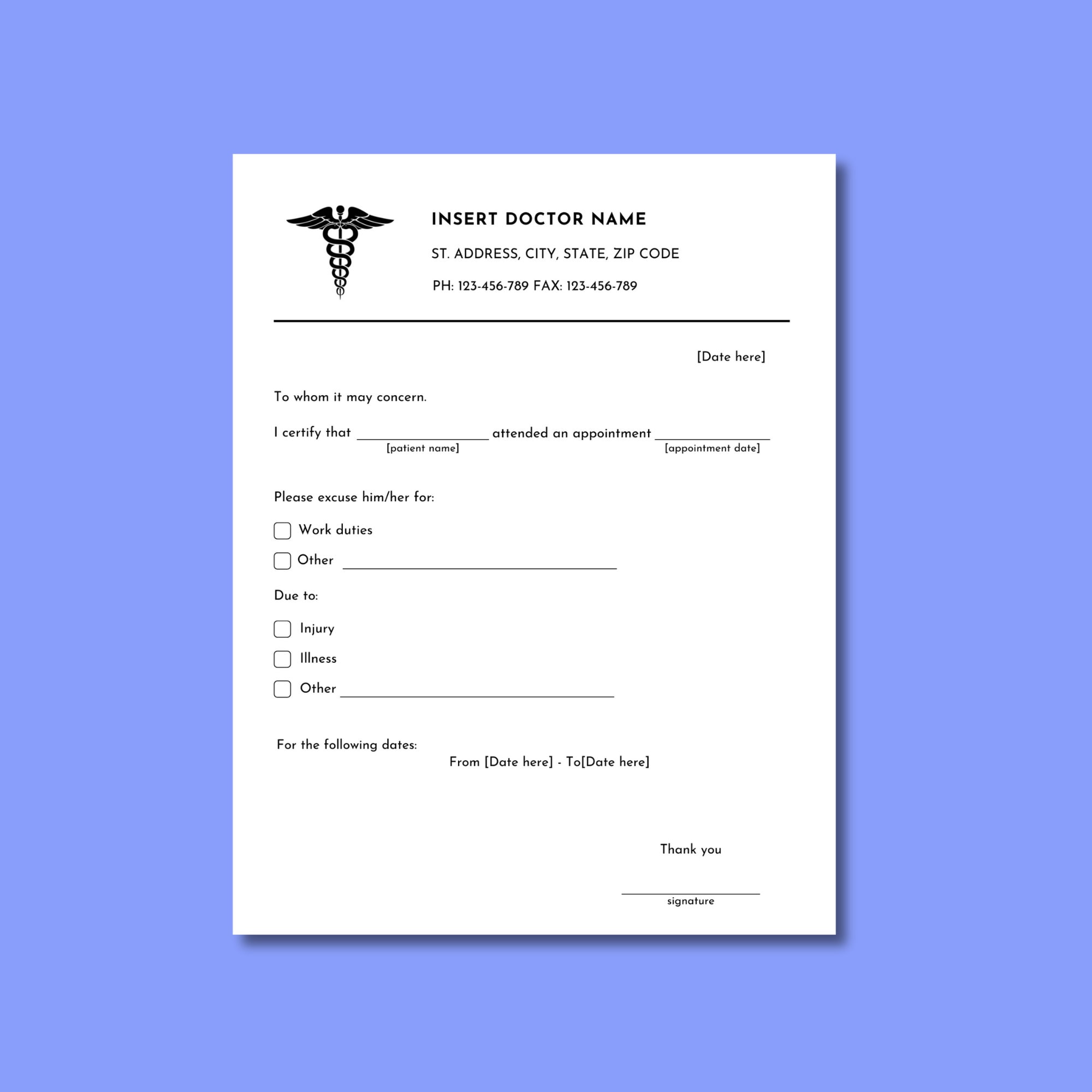
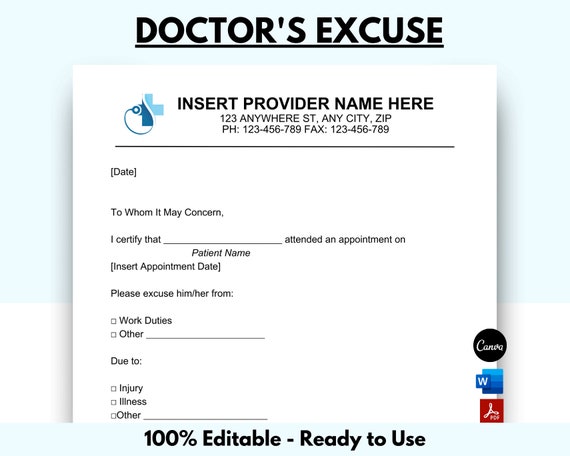
![Can I Get A Doctor's Note Without Being Seen 36 Free Doctor Note Templates [for Work or School]](https://templatelab.com/wp-content/uploads/2022/10/Doctor-Note-Template-V13.jpg)
![Can I Get A Doctor's Note Without Being Seen Doctors Note Printable Template in PDF, Word [Editable]](https://i0.wp.com/templatediy.com/wp-content/uploads/2022/07/Sample-Printable-Doctors-Note.jpg?fit=1414%2C2000&ssl=1)
![Can I Get A Doctor's Note Without Being Seen 36 Free Doctor Note Templates [for Work or School]](https://templatelab.com/wp-content/uploads/2022/10/Doctor-Note-Template-V02.jpg)
